Wild Rice Harvest on Rice Lake
“This lake is sacred to us because our migration story told us to go find the “food that grows on water” and Manoomin is that food My dad who is no longer with us, was one of 5 rice chiefs; these rice chiefs knew the lake well because they’ve been harvesting it for over 50 years The chiefs let the community know when it was time to harvest and when to let the lake rest Now my brother is a rice chief Generations trying to carry on what we’ve been taught”
Tina Van Zile, Environmental Director for Sokaogon Chippewa Community Mole Lake Band of Lake Superior Chippewa and WTCAC President on the cultural significance of Rice Lake Tribal Regenerative Agriculture Workshop, August 2022

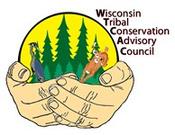

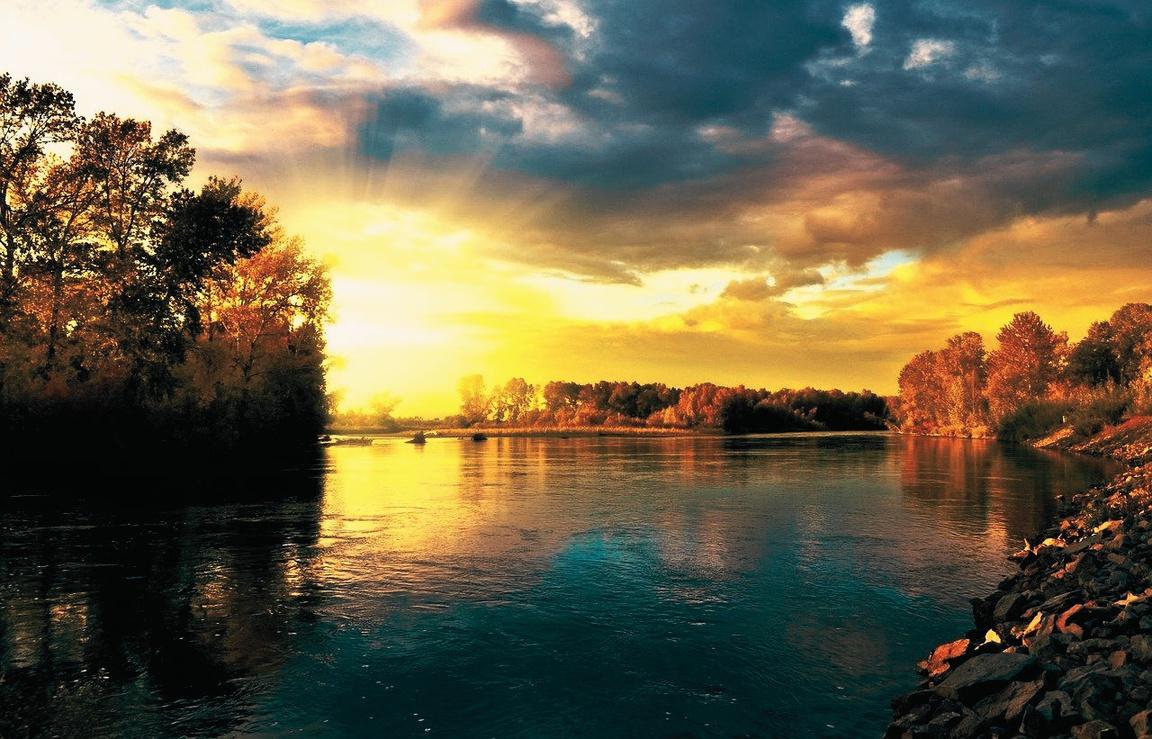
THE WTCAC FALL NEWSLETTER OCTOBER 2022 The official newsletter of the Wisconsin Tribal Conservation Advisory Council This issue: Wild Rice Harvest PAGE 01 WTCAC FALL NEWSLETTER PAGE 01 Joey Billyboy, WTCAC Intern PAGE 02 Ryan Metoxen, WTCAC Intern PAGE 03 Tribal Regenerative Agriculture Workshop PAGE 04 05 WTCAC Internship Announcement PAGE 06 Training Announcements PAGE 07 WICCI Report, Forests PAGE 08 WICCI Report, Water Resources PAGE 09
EAB Community Toolbox PAGE 10
2022 Summer Intern: Joey Billyboy
Hello once again! This is my third summer working for WTCAC It has been such a great experience for me I'm a nontraditional student and that has been the biggest challenge for me because finding internships that help families are limited Working with WTCAC has helped me grow as a person and gave me the tools I needed to succeed to move forward with my career in conservation
While working with WTCAC a few summers ago they told us about the 1994 Tribal Grant, for which I was awarded a full ride scholarship I am attending Northwest Indian College in Washington State to get my Bachelor of Science in Native Environmental Science The 1994 scholarship will help me move forward with a career with Natural Resources Conservation Services (NRCS) to become a Soil Conservationist
I was stationed on my reservation Lac Courte Oreilles at the Lac Courte Oreilles Conservation Department for my internship with WTCAC. This was my first year in the office due to the pandemic and got the opportunity to gain so much knowledge and experience. I was taught about our tribal ceded territory, fishing rights and how we got them, the Tribble brothers, and how they had a major impact on people and our rights. I also learned how to give out permits for fishing, hunting, and gathering along with the rules and regulations that went with it I got to learn about our treaty's rights along with heritage and tradition, our land and land use, and the problems we are facing as an Indian country
I also got to spend some time at the LCO farm, where some of the projects help the community by having a community garden, along with the gardening tools and assistance you need Accomplishing this will help bring back our traditional foods They also teach you about different kinds of plants, their benefits, and how to cook and use them Some of the educational experiences the LCO farm can provide is having students come from the tribal school to help with the planting, weeding, etc One of the goals is to give the tools to the next generation to thrive in our traditional lands and how to use them as our ancestors did
What Native Science and being a scientist means to me as an indigenous person is that it is important to have those ancestral memories, the depth of the meanings in our relationship with mother earth, and our seven teachings that have the values of healing.
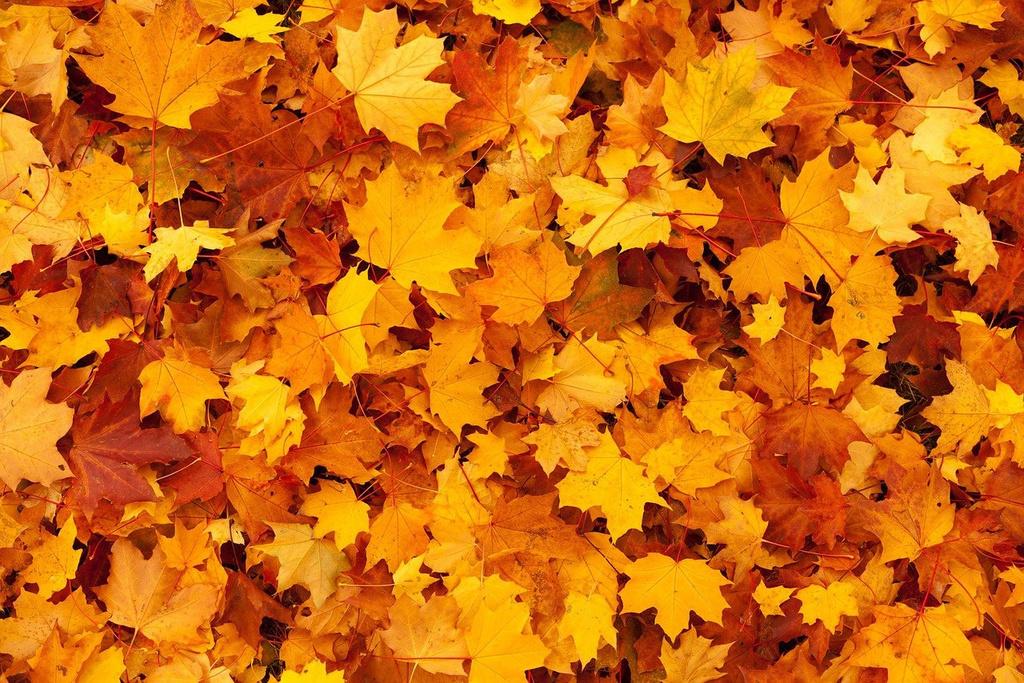

WTCAC FALL NEWSLETTER PAGE 02
"Working with WTCAC has helped me grow as a person and gave me the tools I needed to succeed to move forward with my career in conservation."
2022 Summer Intern: Ryan Metoxen

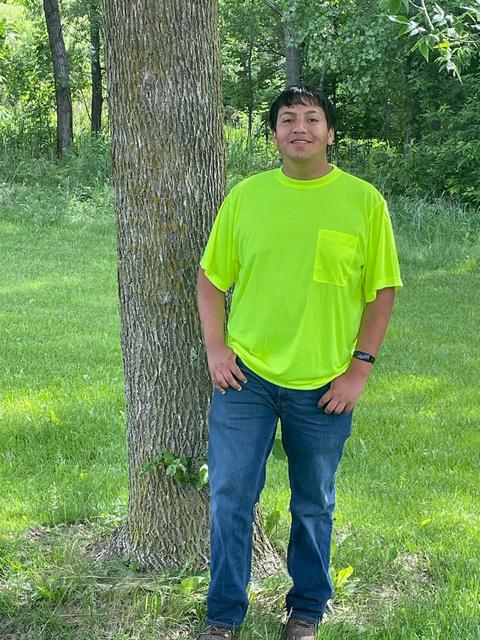
My name is Ryan Metoxen Hamilton I am a current student at the University of Wisconsin Stevens Point I am currently working towards a major in Biology, but thinking about changing minor to something towards forestry or environmental mangment This summer I had an internship with Oneida Nation Eco Services Department and Wisconsin Tribal Conservation Advisory Council. (WTCAC). My main job duties were doing insect surveys, trapping non native invasive pest insects throughout Oneida lands. I have also been providing some outreach materials to inform Oneida Nation residents about the invasive insect and plant spieces that are common in our area In addition I have helped collect sample from 3 different streams to determine the stream's health I have also help release a beetle called galerucella that eat only purple loosestrife plants to help control the plants population This was the experiences I had in the internship with Oneida Nation Eco Services Department and Wisconsin Tribal Conservation Advisory Council (WTCAC)
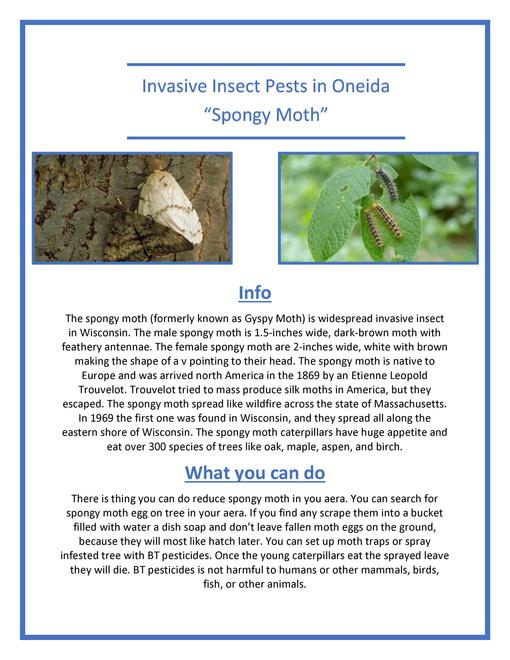

WTCAC FALL NEWSLETTER PAGE 03
EXAMPLE OF RYAN'S OUTREACH WORK
EXAMPLE OF RYAN'S OUTREACH WORK
TRIBAL REGENERATIVE AGRICULTURE WORKSHOPS: South Central, WI July 2022
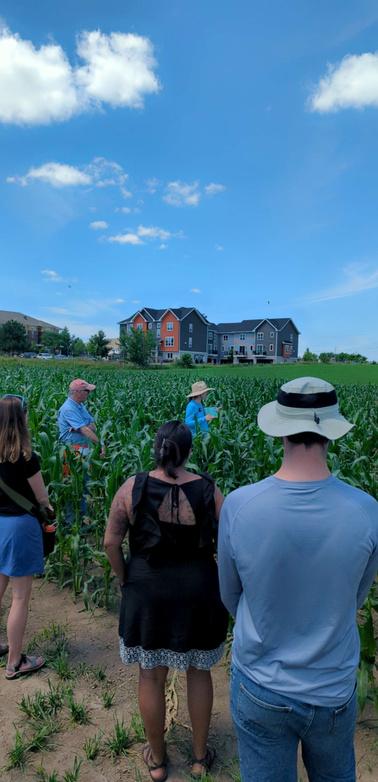 BY GREGORY GAUTHIER, JONATHAN PRUITT, AND TOM MELNARIK
BY GREGORY GAUTHIER, JONATHAN PRUITT, AND TOM MELNARIK

Growing up, we were taught that it is both useful and responsible to have a basic idea of where our food comes from. Current events, unpredictable supply chains, and high prices at the markets have made food sovereignty a higher priority for many tribal nations and citizens Many tribal producers have already been practicing regenerative agriculture for years, but exactly how is that defined, and what does that mean in practice?
I recently asked Dan Cornelius about his thoughts on regenerative agriculture Dan, who worked for Intertribal Agriculture Council (IAC) for many years and recently took a job with UW Madison explained it as, “Going back to ways Tribes have always done things to grow food, care for the land, and its ability to give back ” Dan and his family run a farm near Madison that puts this idea into practice They have goats, chickens, cattle, a large garden area, and hoop houses that help provide for their needs Dan’s definition of regenerative agriculture also takes on a community approach of providing for elders He has been the driving force behind food box programs and is always working to make the food in them more nutritious and traditional Some food from his farm goes into these efforts He has also advocated for education and the use of USDA programs by individual producers
WTCAC, USDA, and UW Madison hosted a series of education days this past summer, open to all Tribal members, natural resources staff, and partners to look at what is being done on the local levels regarding regenerative agriculture. In July, a two day workshop near Madison began by exploring organic approaches to farming, particularly weed control and ways to build soil health. The group then visited a FEED (Food Enterprise and Economic Development) kitchen in Madison where their model of providing a food preparation area accessible to all may be applicable on a Tribal level Dan then took us out to Silverwood County Park to look at an example of indigenous agriculture and to explain how a community incubator farm model works Then we were all invited to Dan’s farm, called Yowela for a dinner featuring indigenous food as well as a tour of his gardens and pasture Dan uses NRCS funding for energy audits, rotational grazing, and hoop houses His garden consists of indigenous varieties of corn, beans, and squash grown with a three sisters philosophy
WTCAC FALL NEWSLETTER PAGE 04
“Going back to ways Tribes have always done things to grow food, care for the land, and its ability to give back.”
-Dan Cornelius
The second day featured a tour of the new UW Madison meat processing facility Animals from the UW farm system are slaughtered, butchered, packaged, and sold there While offering classes for credit in meat processing, they also do extensive research on new meat products for large meat suppliers and donors to the facility Of interest is their research into and the development of animal parts that can be used for medicinal purposes. The tour also gave those attending ideas for doing something similar, but maybe on a smaller scale. For example, during our tour of the Oneida Nation in August, we looked at a mobile slaughterhouse unit that can process large animals on the farm and a chicken processing room that serves as a white corn processing facility as well
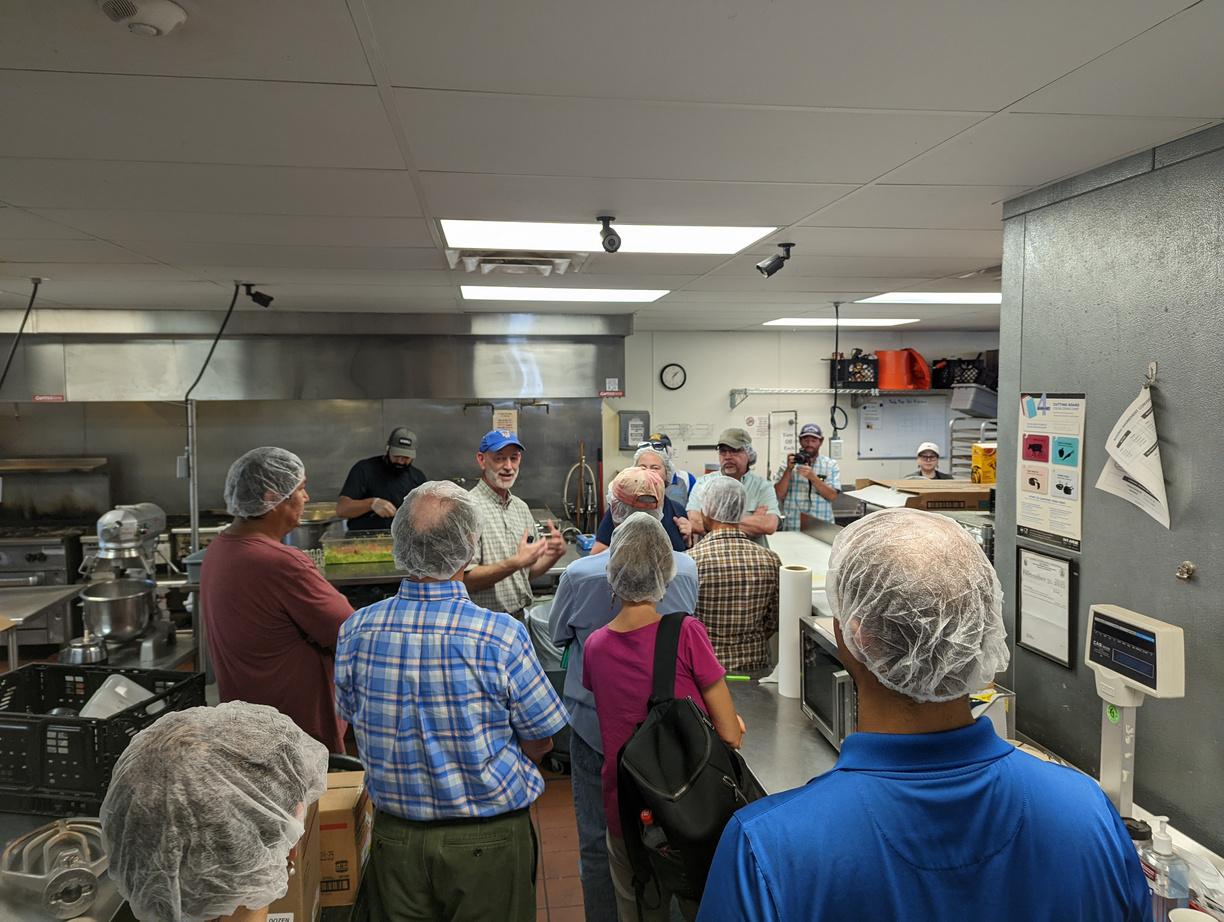
We wrapped up our second day with a tour of a community garden and a visit to another of UW Madison’s research farms I was impressed with the diversity of crops and the amount of food that can be grown in small plots in community gardens At the research farm, the thing that struck me most was the value they placed on indigenous seed stores and the different plots they have for growing them out and increasing the seed banks They work closely with Native communities in Wisconsin to ensure that these seed banks are not lost
The lunches and dinners for the July regenerative agriculture workshops were prepared and catered by Wild Bearies and Chef Elena Terry Wild Bearies is a Ho Chunk startup business that prepares delicious indigenous cuisine. Check out their Facebook Page! Wild Bearies | Wisconsin Dells WI | Facebook
The workshops were attended by tribal members and natural resource staff from Ho Chunk, Oneida Forest County Potawatomi, Menominee, and Mole Lake Thank you to all of the presenters and everyone that made the workshops a success!

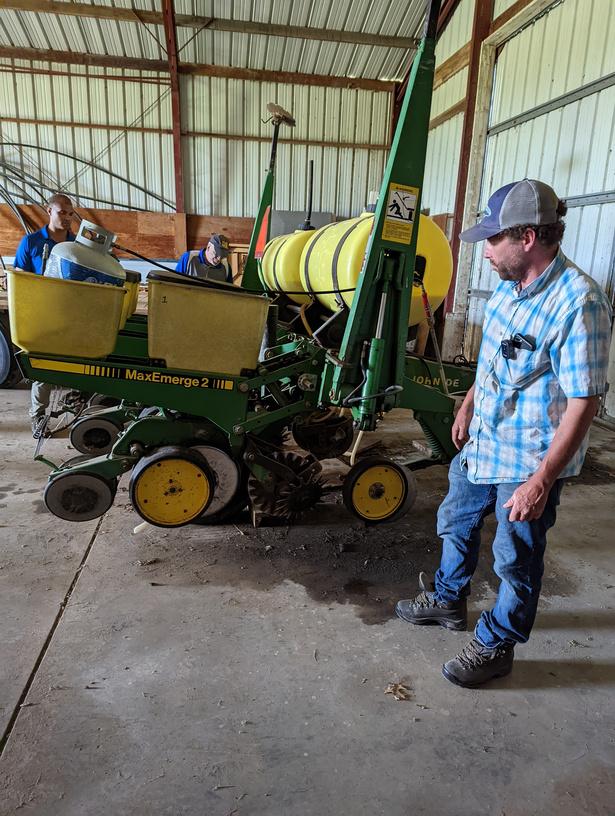
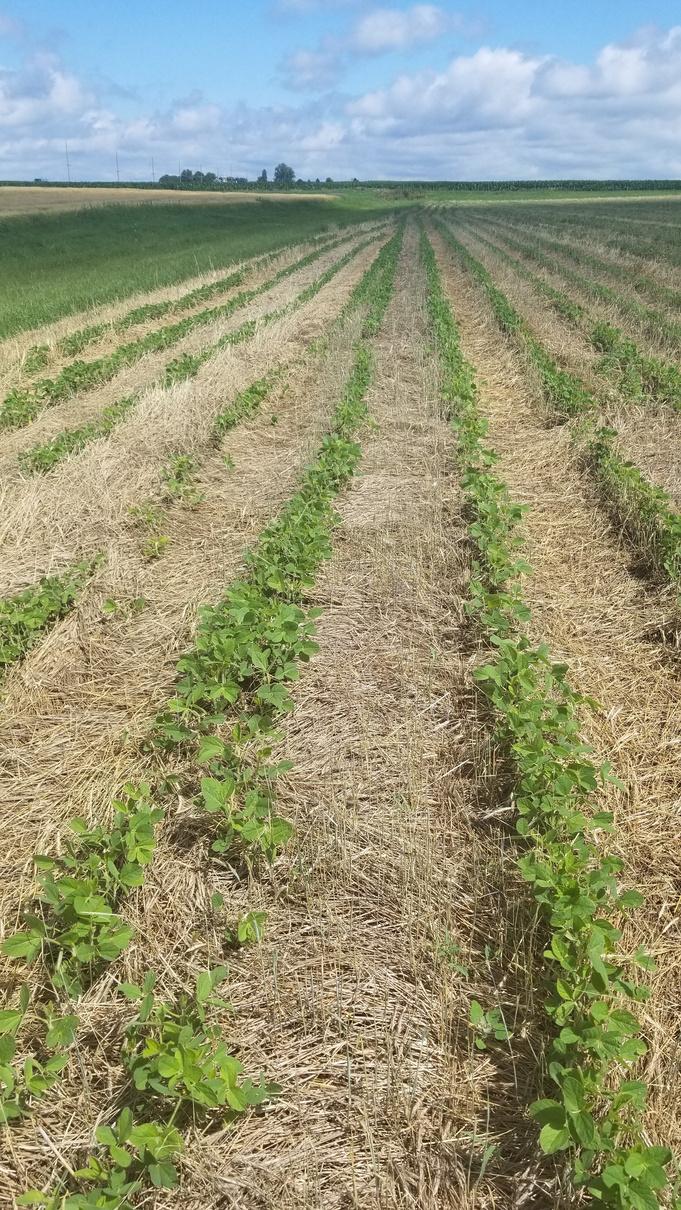
WTCAC FALL NEWSLETTER PAGE 05
Check out the next WTCAC Spring Newsletter to read more about the August Northeast, WI Tribal Regenerative Agriculture Workshop!
Tribal Regenerative Agriculture Workshops: South Central, WI July 2022 continued...

WTCAC FALL NEWSLETTER PAGE 06 2023 WTCAC Summer Internship Program Annoucement WE ARE NOW ACCEPTING APPLICATIONS FOR THE 2023 SUMMER INTERNSHIP SEASON WI TRIBES ON PEST SURVEY, EDUCATION AND OUTREACH UNITED STATES FOREST SERVICE NATURAL RESOURCES CONSERVATION SERVICE ANIMAL AND PLANT HEALTH INSPECTION SERVICE, WILDLIFE SERVICE NATIONAL AGRICULTURAL STATISTICAL SERVICE OTTAWA NATIONAL FOREST VISITOR CENTER INTERNSHIPS FOR 2023 INCLUDE POTENTIAL OPPORTUNITIES TO WORK WITH: MUST BE 18 YEARS OR OLDER MUST BE ENROLLED FULL TIME IN A COLLEGE OR UNIVERSITY LOCATED IN WISCONSIN MUST BE AN ENROLLED MEMBER OF A FEDERALLY RECOGNIZED TRIBE IN WISCONSIN MUST HAVE A CUMULATIVE GPA OF 2 5 OR HIGHER MINIMUM QUALIFICATIONS: TO APPLY: SEND A COVER LETTER OF INTEREST, UNOFFICIAL TRANSCRIPTS, AND TRIBAL ENROLLMENT VERIFICATION TO MJOHNSON@WTCAC.ORG IN 2009 WTCAC ESTABLISHED THE WISCONSIN NATIVE AMERICAN STUDENT SUMMER INTERNSHIP PROGRAM FOR STUDENTS PURSUING DEGREES IN NATURAL RESOURCES, BIOLOGICAL SCIENCES, AGRICULTURE, AGRICULTURAL BUSINESS, FORESTRY, CIVIL ENGINEERING AND ANIMAL HEALTH AND HUSBANDRY. SINCE THEN, MORE THAN 60 STUDENTS HAVE PARTICIPATED IN WTCAC INTERNSHIPS RESULTING IN PLACEMENTS WITH NATURAL RESOURCES CONSERVATION SERVICE, FOREST SERVICE (STATE AND PRIVATE FOREST), FOREST SERVICE (NATIONAL PARK AND FOREST SERVICE) ANIMAL PLANT HEALTH INSPECTION SERVICE (VETERINARY SERVICES AND PPQ) ANIMAL HEALTH INSPECTION SERVICE (WILDLIFE SERVICES) RISK MANAGEMENT, AS WELL AS TRIBAL PLACEMENTS IN WISCONSIN, MICHIGAN, AND MINNESOTA
Training Announcements
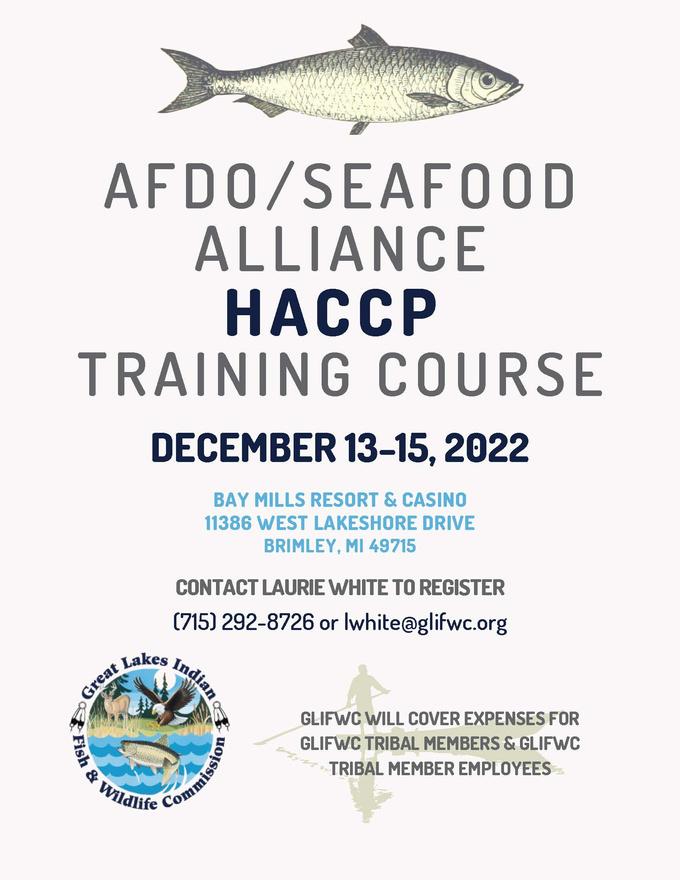
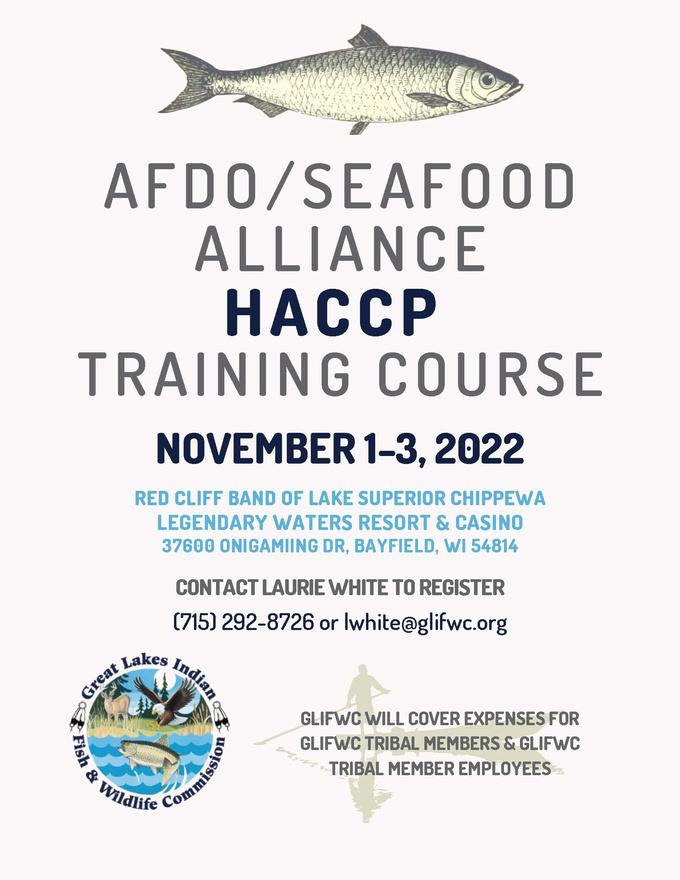

WTCAC FALL NEWSLETTER PAGE 07
WICCI Report, warmer winters and extreme rain are stressing Wisconsin’s forest resources
 By Dea Larsen Converse, WICCI Communications Director
By Dea Larsen Converse, WICCI Communications Director
A focus on climate impacts to Wisconsin’s forests in the most recent assessment from the Wisconsin Initiative on Climate Change Impacts (WICCI) shows that warming temperatures and changing precipitation patterns are impacting Wisconsin’s urban and rural forests. Wisconsin’s average daily temperature has become three degrees Fahrenheit warmer and precipitation has increased 17 percent, about five inches, since 1950. The last two decades have been the warmest on record and last decade was the wettest
“Wisconsin forests cover nearly half of Wisconsin and provide a unique opportunity to address climate change by reducing concentrations of greenhouse gases while simultaneously providing essential social, environmental, and economic benefits.” Stephen Handler, WICCI Forestry Working Group Chair
Climate Impacts to Forests
Warmer winters. Winter has warmed about twice as fast as other seasons in Wisconsin over the past few decades. In Northern Wisconsin, where most of Wisconsin’s forests are located, warmer winters are reducing the snowpack that insulates trees and other organisms, impacting forest operations such as harvesting and transportation that rely on frozen ground, and creating less lethal conditions for pests and diseases
Deer herds. With less severe winters, especially in Northern Wisconsin, larger numbers of deer are surviving and having a big impact on forest regeneration as they browse on understory plants, including sensitive species. Extreme weather events. Extreme storms are happening more frequently and creating a great deal of damage in forests through flooding, erosion, and deposition of nutrients and invasive species seeds These extreme storms also cause considerable damage to infrastructure on forest land Summer droughts and longer growing seasons Warmer temperatures, longer growing seasons, and decreasing summer precipitation in Northern Wisconsin, are increasing the risk for wildfires, pests, and disease. Reduced snowpack and earlier springs are also drying out vegetation at a faster rate in the spring and summer. While prescribed fires could help, it is becoming increasingly difficult to find a safe window to use them as the climate changes
Impacts on communities While all communities in Wisconsin are at risk, historically disadvantaged communities bear a disproportionate burden and suffer the greatest harms For example, large canopy trees can play a big role in helping urban areas become more resilient to climate change, yet studies are showing a disparity in the location of tree canopy in some cities. Also, Wisconsin tribes are working to help culturally significant species, like paper birch, adapt to changing conditions with resources like climate change vulnerability assessments.
On their webpage, the WICCI Forestry Working Group suggests solutions and offers tools to help landowners and forest managers address climate impacts
WICCI is a nationally recognized collaboration of scientists and stakeholders working together to help foster solutions to climate change in Wisconsin.
WTCAC FALL NEWSLETTER PAGE 08
By Dea Larsen Converse, WICCI Communications Director

“The warming climate is having an impact on water resources in Wisconsin We need to increase the magnitude and urgency of actions to protect and restore habitat and enhance water quality to make Wisconsin’s waters more resilient to climate change.” Katie Hein, WICCI Water Resources Working Group Co Chair
Average precipitation and extreme storm events that deliver large amounts of water in short periods are increasing in Wisconsin, resulting in flooding problems. Areas with permeable soils where the water table is near the surface, like lake shorelines and wetlands, can flood after periods of higher than average precipitation. Streams also flood during large storms, causing damage to infrastructure, habitat loss, and risks to human health. The fast flowing water during floods increases erosion and can also cause deep channels to form that intensify the flow of stormwater These channels further reduce flood storage, degrade water quality, and increase downstream flooding
The warmer water temperatures combined with more runoff from extreme precipitation events also threaten water quality In built areas with large amounts of impervious surface, runoff receives little natural filtration, enabling sewage overflows and a wide variety of pollutants to reach surface waters Statewide, nutrient runoff from agricultural lands fuels algal blooms, a major water quality issue Erosion and sedimentation are also a concern in many areas, including forested lands.
As lake water temperatures have warmed overall, the risk of fish kills and toxin producing algal blooms is increasing As the air temperature continues to warm, lake surface water temperatures in all lakes will also warm, changing lake ecology. Fewer lakes will be able to support cool water fish like walleye and warm water fish like largemouth bass will be much more common as waters warm by mid century. While all communities in Wisconsin are at risk from flooding and changes in the natural communities, historically disadvantaged communities bear a disproportionate burden and suffer the greatest harms Read more about these impacts in the interviews linked to this article
The WICCI report suggests solutions to prepare for and minimize climate impacts to water resources, like increasing water storage across the landscape, installing green infrastructure, protecting wetlands, building outside of flood zones, and installing flood warning systems Visit the Water Resources Working Group webpage to learn more There is hope for the future, but it is up to us.
WTCAC FALL NEWSLETTER PAGE 09
WICCI Report, warmer winters and changing precipitation patterns are affecting WI's wealth of water resources
A MESSAGE FROM OUR PARTNERS AT THE WI DNR


For communities planning for or currently dealing with Emerald Ash Borer (EAB), the Wisconsin Department of Natural Resources (DNR) Urban Forestry program has an EAB Community Toolbox available with relevant resources. The toolbox covers a variety of topics about EAB, from detection and writing management plans, to what to do with dead and fallen trees and how to select which species should replace them. DNR Urban Forestry Regional Coordinators are available to help community foresters as they manage their EAB infestation. The toolbox will eventually be edited and expanded to include other topics such as acute tree damage threats like storm damage and new invasive pests over time.
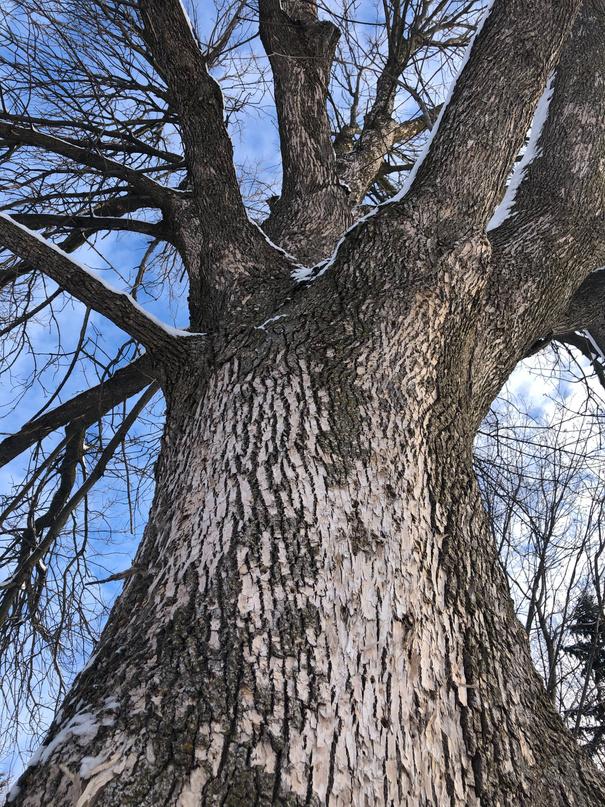
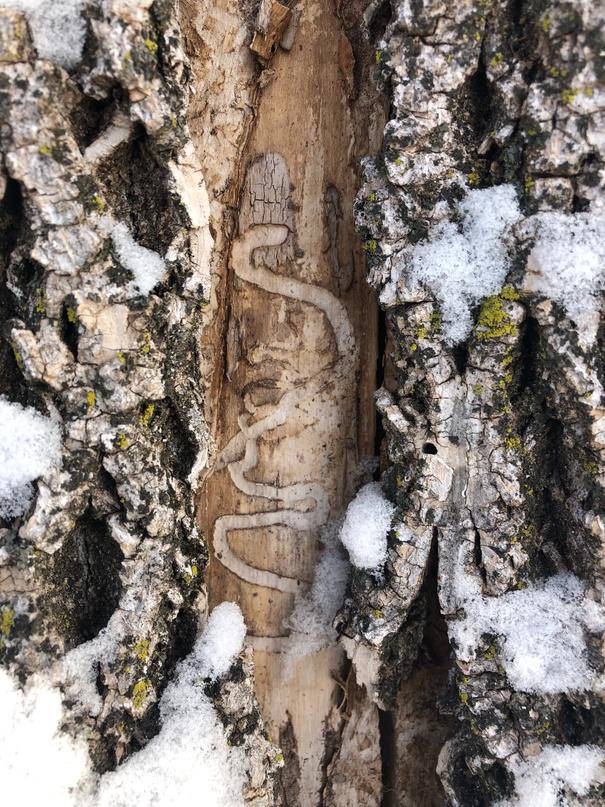
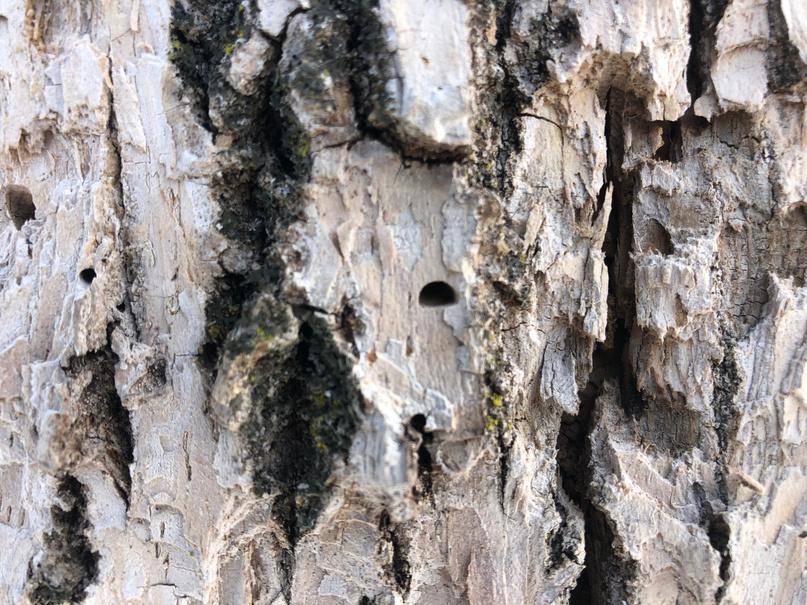
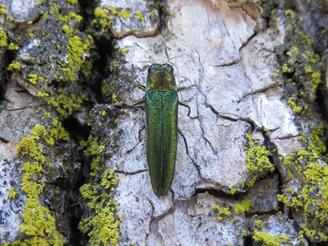
WTCAC FALL NEWSLETTER PAGE 10 COMMUNITY TOOLBOX Emerald Ash Borer Community Toolbox | | Wisconsin DNR FOLLOW THE LINK:


WTCAC Staff Jeff Mears Executive Director 920 639 7457 jmears@wtac.org Tom Melnarik WTCAC Civil Engineering Technician 715 902 9286 tmelnarik@wtcac.org Jonathan Pruitt Tribal Resource Conservationist 517 281 7035 jpruitt@wtcac.org Melissa Johnson Pest Survey Specialist 920-471-2356 mjohnson@wtcac.org Greg Gauthier Outreach and Education Coordinator 715 204 9036 ggauthier@wtcac.org www.wtcac.org @WTCAC










 BY GREGORY GAUTHIER, JONATHAN PRUITT, AND TOM MELNARIK
BY GREGORY GAUTHIER, JONATHAN PRUITT, AND TOM MELNARIK









